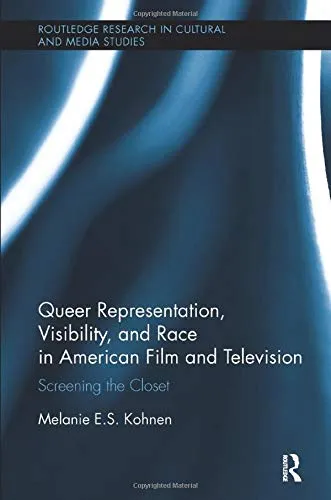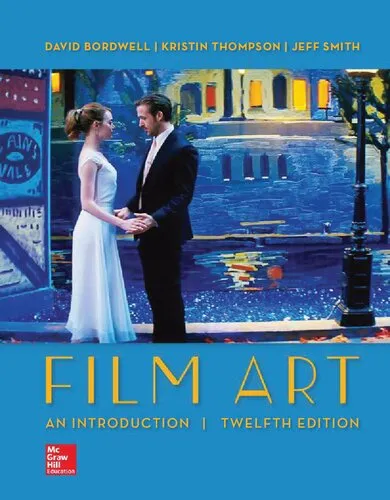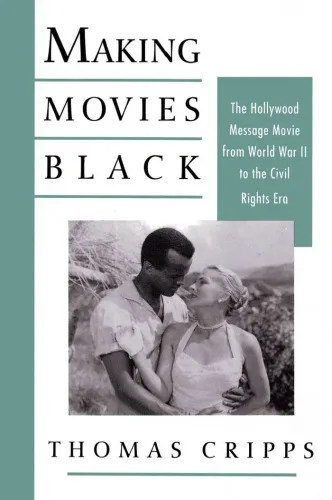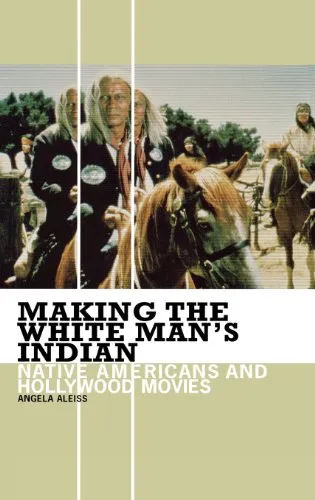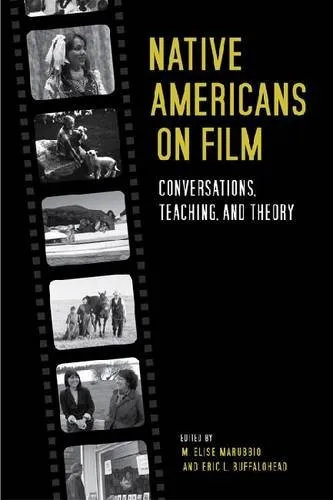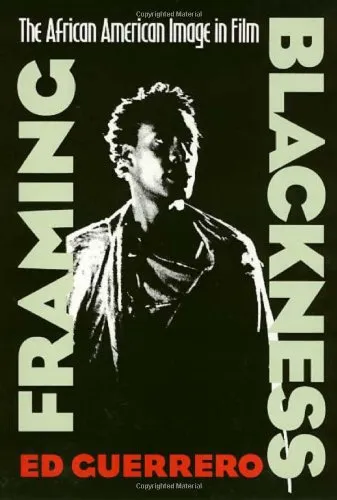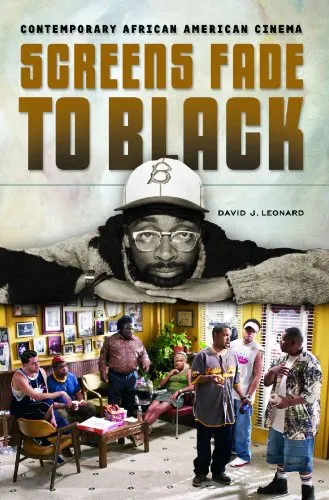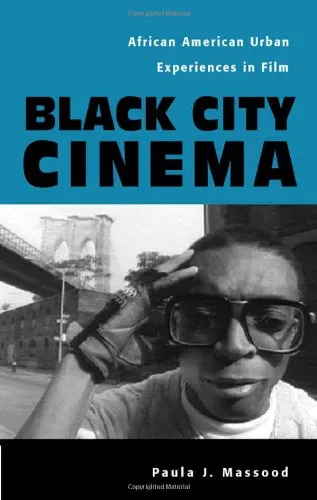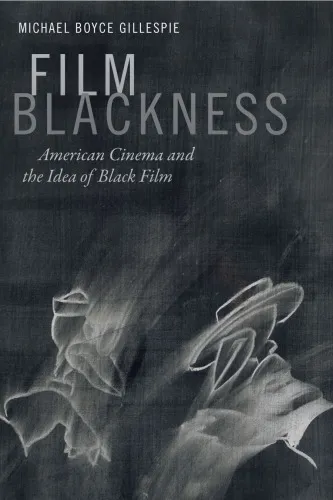Queer Representation, Visibility, and Race in American Film and Television: Screening the Closet
4.5
بر اساس نظر کاربران

شما میتونید سوالاتتون در باره کتاب رو از هوش مصنوعیش بعد از ورود بپرسید
هر دانلود یا پرسش از هوش مصنوعی 2 امتیاز لازم دارد، برای بدست آوردن امتیاز رایگان، به صفحه ی راهنمای امتیازات سر بزنید و یک سری کار ارزشمند انجام بدینکتاب های مرتبط:
معرفی کتاب: Queer Representation, Visibility, and Race in American Film and Television: Screening the Closet
کتاب Queer Representation, Visibility, and Race in American Film and Television: Screening the Closet نوشته ملانی کهن، یکی از آثار معتبر و تحلیلی است که به بررسی بازنمایی جامعه کوییر در فیلمها و تلویزیون آمریکا میپردازد. این اثر با استفاده از یک رویکرد میانرشتهای، تحلیلهای فرهنگی، تاریخی و رسانهای را ترکیب میکند تا تأثیرات بازنماییهای کوییر را در چارچوب نژاد و جنسیت بررسی کند.
خلاصهای از کتاب
این کتاب موضوع بازنمایی کوییر را نه تنها از منظر آشکارسازی و دیدهشدن، بلکه با نگاهی عمیقتر به تأثیر رفتارهای فرهنگی و کلیشههای نژادی در سینما و تلویزیون آمریکا مورد بررسی قرار میدهد. Screening the Closet بهطور خاص درک «کمدِ» نمادین را بهعنوان ابزاری برای سرکوب و همچنین گاهی مقاومت تحلیل میکند. نویسنده از مطالعات موردی متنوعی استفاده میکند، از فیلمهای کلاسیک هالیوودی گرفته تا سریالهای تلویزیونی مدرن مانند Will & Grace و Orange Is the New Black، تا چگونگی به تصویر کشیدن روابط کوییر را بهویژه در بسترهای نژادی بررسی کند. این اثر، بازنمایی کوییر را بخشی از گفتوگوهای بزرگتر اجتماعی درباره هویتهای چندگانه میداند و تلاش میکند تا پیچیدگیهای موجود بین هویت جنسی، فرهنگ و نژاد را برجسته کند.
نکات کلیدی
- بازنمایی جامعه کوییر در سینما و تلویزیون بهشدت تحت تأثیر کلیشههای نژادی و هنجارهای فرهنگی است.
- عبارت "Closet" بهعنوان استعارهای برای محدودیتها و سرکوب در جامعه عمل میکند و در عین حال به مکانی برای مقاومت نیز تبدیل میشود.
- این کتاب نشان میدهد که چگونه ایدئولوژی غالب، بازنمایی کوییر را در رسانه قالببندی میکند و چه چالشی برای ادغام هویتهای چندگانه وجود دارد.
- مطالعات موردی این کتاب از نمونههای متنوعی در تاریخ سینما و تلویزیون استفاده میکنند تا دیدگاههای مختلف را بازتاب دهند.
جملات مشهور از کتاب
"Visibility does not equate to equality; representation always comes with its own set of politics."
"The 'closet' functions as both a prison and a sanctuary in the cultural imagination."
چرا این کتاب مهم است؟
کتاب Screening the Closet در زمانهای نوشته شده که مباحث هویتهای جنسیتی و نژاد همچنان در مرکز توجه جامعه قرار دارند. این اثر نه تنها به بازنمایی کوییر در فضای رسانهای میپردازد، بلکه نقش این بازنمایی را در بازتعریف هویتها و بازسازی تصور عمومی بررسی میکند. بهویژه در عصری که تولیدات رسانهای از اهمیت چشمگیری در شکلدهی نگرشهای اجتماعی برخوردار است، تحلیلهای این کتاب به خوانندگان کمک میکند که تأثیرات تصویری رسانهها را بهتر درک کنند و به لایههای پنهان پیامهایی که از طریق بازنمایی ارسال میشوند، پی ببرند. به این ترتیب، این کتاب برای دانشجویان رشتههای مطالعات رسانه، جنسیت و نژاد، و همچنین برای هر کسی که بهدنبال درک عمیقتری از فرهنگ معاصر است، یک منبع ارزشمند محسوب میشود.
Introduction to 'Queer Representation, Visibility, and Race in American Film and Television: Screening the Closet'
Representation matters. This simple yet powerful statement serves as a foundation for understanding how media contributes to cultural narratives about identity, power, and belonging. In my book, Queer Representation, Visibility, and Race in American Film and Television: Screening the Closet, I delve deeply into the nuanced intersections of queer identities, race, visibility, and representation within a medium as culturally significant as American film and television.
Media plays a vital role in shaping social attitudes, informing how marginalized groups are portrayed and perceived. The book explores pivotal questions about how queer characters and relationships are depicted in film and television, how these portrayals have evolved over time, and how race influences these narratives. This book is a vibrant discussion rooted in the interaction between race and sexuality and their mediated on-screen representations, interrogating the gaps, ambiguities, and achievements within this ongoing process.
Summary of the Book
This book is organized around a critical analysis of the intersections between queerness and race throughout the history of American film and television. It begins by mapping the historical portrayals of queer people in media, tracing their presence and absence, as well as their evolution from coded subtexts to more overt expressions of LGBTQ+ identities. However, 'visibility' does not necessarily mean equal representation—an issue that this book interrogates thoroughly. Visibility is often framed through a narrow, white-centered lens, and the book critically unravels how race significantly impacts the portrayal of queer characters.
The central argument of the book is that mainstream depictions of queerness have largely conformed to norms of whiteness and heteronormativity, often excluding or marginalizing queer people of color. By engaging with both theoretical frameworks and textual analysis, the book investigates influential media examples, from early Hollywood films to contemporary TV dramas, comedies, and streaming platforms. It explores landmark moments of queer visibility, such as Will & Grace, and evaluates groundbreaking works that challenge traditional norms, like Moonlight and Pose.
In concentrating on both the triumphs and limitations of media representations, Screening the Closet highlights the power of the industry to reflect societal values while emphasizing the ongoing need for more inclusive storytelling that prioritizes intersectionality.
Key Takeaways
- Representation in media is never neutral. It shapes and reflects broader cultural assumptions about race, gender, and sexuality.
- 'Visibility' is a complex concept. While increased representation of queer characters is significant, the quality and context of such portrayals matter equally.
- Race and sexuality intersect in powerful ways, often influencing how characters are written, cast, or erased in media storytelling.
- Mainstream media often centers whiteness when depicting LGBTQ+ narratives, sidelining the diversity of real queer experiences.
- The book champions intersectionality as an essential framework for understanding how different aspects of identity shape experiences, both in reality and in fictional representations.
Famous Quotes from the Book
"Visibility is not an end in itself—it is a means toward achieving justice, wholeness, and truth for those who have been erased or misrepresented."
"The closet has always been a racialized space, even if popular culture typically assumes its occupants to be white."
"Representation is not about mere inclusion. It is about the stories we tell, the values we reflect, and the possibilities we imagine."
Why This Book Matters
In today’s media-saturated world, the stories told through film and television hold immense power in shaping public perceptions of marginalized communities. Queer Representation, Visibility, and Race in American Film and Television addresses urgent concerns about how these mediums depict queer people, particularly focusing on the experiences of queer individuals of color. By taking a rigorous, intersectional approach, the book challenges readers to reconsider the ways in which race and sexuality influence not only representation but also the very frameworks through which we interpret identity.
As debates around diversity and representation intensify in Hollywood and beyond, this book offers a comprehensive framework for understanding why visibility matters and how it can be improved. More importantly, it urges content creators, critics, and audiences to demand thoughtful, authentic portrayals that move beyond stereotypes and tokenization. By addressing the gaps in representation and celebrating the works that push boundaries, the book strives to be both a critical resource and a call to action for a more equitable media landscape.
دانلود رایگان مستقیم
شما میتونید سوالاتتون در باره کتاب رو از هوش مصنوعیش بعد از ورود بپرسید
دسترسی به کتابها از طریق پلتفرمهای قانونی و کتابخانههای عمومی نه تنها از حقوق نویسندگان و ناشران حمایت میکند، بلکه به پایداری فرهنگ کتابخوانی نیز کمک میرساند. پیش از دانلود، لحظهای به بررسی این گزینهها فکر کنید.
این کتاب رو در پلتفرم های دیگه ببینید
WorldCat به شما کمک میکنه تا کتاب ها رو در کتابخانه های سراسر دنیا پیدا کنید
امتیازها، نظرات تخصصی و صحبت ها درباره کتاب را در Goodreads ببینید
کتابهای کمیاب یا دست دوم را در AbeBooks پیدا کنید و بخرید
1430
بازدید4.5
امتیاز0
نظر98%
رضایتنظرات:
4.5
بر اساس 0 نظر کاربران
Questions & Answers
Ask questions about this book or help others by answering
No questions yet. Be the first to ask!
